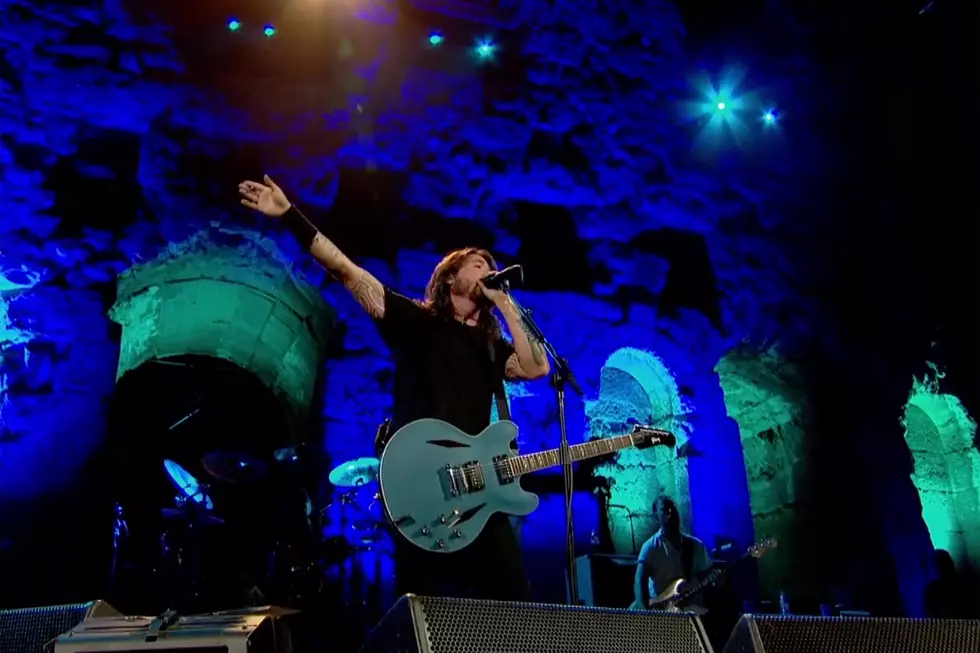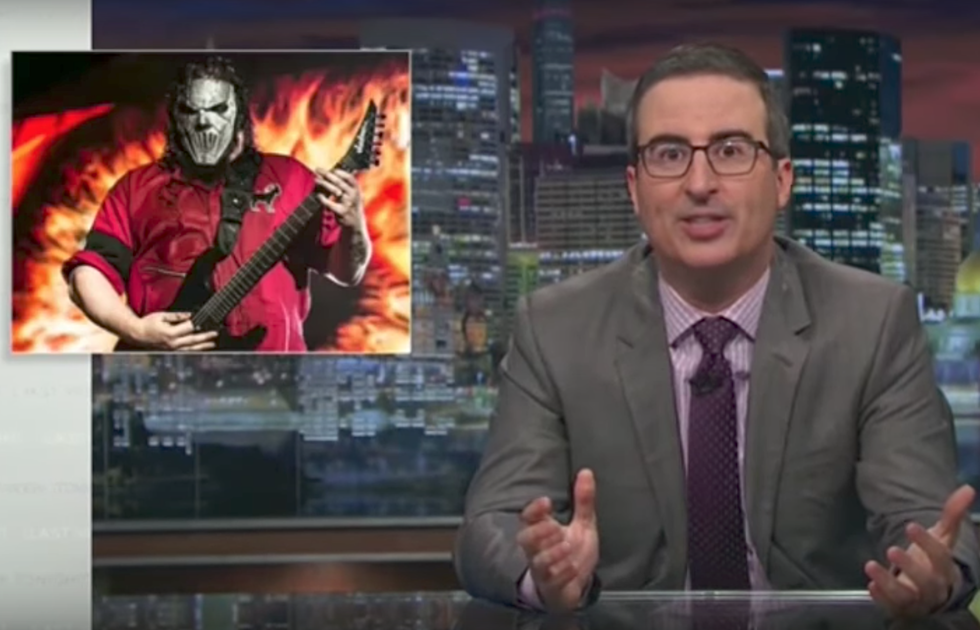
13 Years Ago – Slipknot Bassist Paul Gray Dies
Everyone who knew original Slipknot bassist and songwriter Paul Gray says pretty much the same thing: the guy was super-nice, incredibly friendly and never reeked of rock star ego. The few times I interviewed Gray I found him to be totally accommodating, brutally honest, and extremely proud of the music he wrote and played with the band he loved and loved to talk about. Even when it came to describing something as old-hat as how they got their name, Gray spoke with the enthusiasm of someone telling the story for the first time.
“We had a show booked and we had a song called ‘Slipknot,’" he told me. "It was the first song we had written full-on, which became ‘(sic),’ which was the first song we ever started working on even before [ex-drummer] Joey [Jordison] was in the band. We all thought the name Slipknot rolled off the tongue pretty easy and we needed a name so we could play the show. We did one other show before that and we were called Meld, but we didn’t like that at all. So we went with Slipknot. And that show, people just tripped out. They’d never seen anything like it. After that, we couldn’t really change the name.”
Gray was like a glowing mass of energy that bounced around the room, affecting everyone it touched. But he definitely had his dark side and no matter how hard he tried, he was unable to kick his drug habits for long. When I sat backstage with him shortly before the band released All Hope is Gone, the last record he toured for before his tragic death on May 24, 2010, the bassist admitted that his addiction to heroin spiraled so far out of control in 2003 while the band was working on Vol. 3: The Subliminal Verses that the band eventually staged an intervention.
Slipknot, "Duality" Music Video
“I would spend half the time in the bathroom shooting up,” he revealed. “I'd be trying to play, and I'd fall out of my chair a couple times and fall asleep in the middle of tracking a song. Once you get to a certain point with drugs it's fuckin' so hard going through withdrawal. It's not that you don't want to quit. You just can't. Halfway through the record I ended up going to rehab."
Gray was finally able to kick heroin after his girlfriend and future wife Brenna gave him an ultimatum. “She said, 'I can't sit around and watch you kill yourself,'" he says. “I was living in L.A. at the time, which wasn't helping because it was so easy [to get drugs]. So, I moved back to Iowa with her and went to my doctor and got straightened out. And it's been a good couple years now that I've been clean."
When Slipknot released All Hope Is Gone on August 20, 2008, it seemed like there were other band members who were far more spun-out than Gray. For two years, the band toured for the album and, while chaos reigned, Gray seemed to thrive in the maelstrom, rocking out in his demonic pig outfit, and hanging out and sharing laughs with percussionist and co-founder Shawn Crahan, guitarist Jim Root and vocalist Corey Taylor after the shows. It seemed like Gray, with the help of his wife and bandmates, had taken control of his personal demons and was living a clean life.
That’s why it was such a shock when, on May 24, 2010, the Des Moines Register reported that Gray’s body was found at the TownPlace Suites Hotel in Johnston, Iowa at approximately 10:50 AM local time. He was 38.
A hotel employee said there was a hypodermic next to Gray’s bed and pills scattered across the room. Forensic tests later revealed that Gray died from an accidental overdose of morphine and the painkiller Fentanyl, had a substantial quantity of the anti-anxiety medication Xanax in his system and showed signs of “significant heart disease.”
Devastated by Gray’s death, the surviving members of Slipknot, Gray’s widow and brother, Tony, held a video press conference the next day. During the teary event, vocalist Corey Taylor said, “The only way I can sum up Paul Gray is love. Everything he did, he did for everyone around him whether he knew you or not. ...I will miss him with every fiber of my heart, as will everybody at this table and everyone who knew him. He was the best of us.”
Slipknot Remember Paul Gray at Press Conference
While Gray’s wife, Brenna, pregnant with their child at the time, presented a united front with the rest of Slipknot, she changed her tune in the years that followed, taking legal action against Gray’s physician (who was eventually acquitted of seven charges of manslaughter charges) and pot shots at members of the Knot.
"One was playing golf two minutes away from our house [when Gray was suffering from a spiral of drug abuse], but couldn't come," she testified in April, 2014, reported the Des Moines Register. “Nobody else cared, nobody was involved. They told me it was my problem.”
Gray’s wife testified in Polk County District Court that Gray relapsed in 2008 and the last weeks of his life were a haze of addiction. On May 22, 2010, Gray left home and checked into the long-term stay hotel after his family tried to stage an intervention.
Brenna Gray told the media that she didn’t call police because she was afraid they would find drugs stashed away at the couple’s house and her unborn child would be taken from her. After two days of being unable to reach Gray, his relatives asked the hotel staff to check his room and see if he was okay. When they discovered the bassist’s body they immediately called police.
Gray was buried on May 28 in a private funeral at the Highland Memory Gardens Cemetery in Iowa. In 2011 Slipknot played a series of shows in Europe. The band’s former guitarist Donnie Steele played bass for the shows and on the band’s headline Mayhem Fest appearances. He remained with Slipknot until 2014, when he was replaced by bassist Alessandro Venturella.
Loudwire contributor Jon Wiederhorn is the author of Raising Hell: Backstage Tales From the Lives of Metal Legends, co-author of Louder Than Hell: The Definitive Oral History of Metal, as well as the co-author of Scott Ian’s autobiography, I’m the Man: The Story of That Guy From Anthrax, and Al Jourgensen’s autobiography, Ministry: The Lost Gospels According to Al Jourgensen and the Agnostic Front book My Riot! Grit, Guts and Glory.
Every Slipknot Song Ranked
More From Highway 98.9





![Corey Taylor: ‘I Haven’t Heard Any’ New Slipknot Material, Stone Sour Touring Another 18 Months [Interview]](http://townsquare.media/site/366/files/2017/10/StoneSour-0648.jpg?w=980&q=75)




